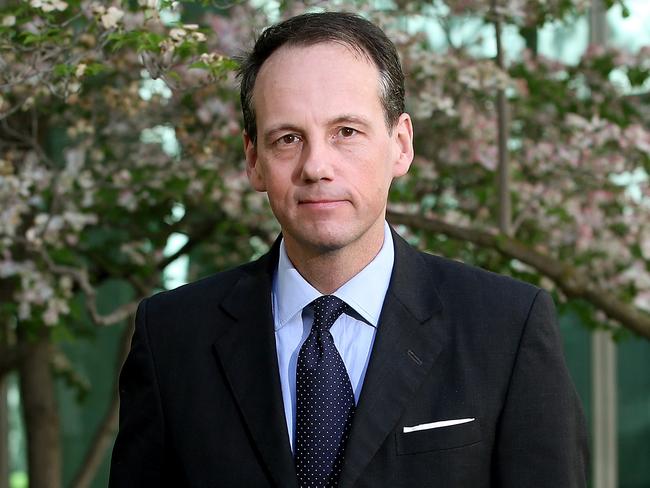Broken ASIC told to prosecute, not bargain, to fix ‘greedy’ finance industry
THE nation’s corporate watchdog may be incapable of repairing itself, according to the former High Court judge overseeing the banking royal commission.
Business
Don't miss out on the headlines from Business. Followed categories will be added to My News.
AUSTRALIA’S corporate watchdog may be incapable of repairing itself, according to the former High Court judge overseeing the banking royal commission.
Kenneth Hayne has questioned whether the regulator, the Australian Securities and Investments Commission, has the capacity to protect consumers from “greedy” banks.
In his scathing interim report, Mr Hayne said ASIC was taking on a more robust approach to enforcing laws. But he was not convinced it could do the required job.
TERRY MCCRANN: BUILDING TRUST KEY TO FUTURE
GREED, WEAK REGULATORS BEHIND BANKING SCANDALS
BIG SUPER SWITCH FROM BANKS GAINS PACE

“As the commission’s work has continued, there are signs that ASIC may be seeking to alter its approach to enforcement,” Mr Hayne said. “Even so, I remain to be persuaded that it can and will make the necessary changes.”
The report, released this afternoon, covered the first four rounds of public hearings, which took place between March and July.
It made no detailed recommendations but raised many questions Mr Hayne believes need to be answered in order to clean up the financial system.
His final report is due in February. It will cover the two rounds of public hearings that have taken place during the past two months, and the final round, in November.
In a statement, ASIC chair James Shipton noted the report’s “serious and important observations of ASIC’s role as a regulator”.
“ASIC will carefully consider these observations,” he said, pledging to keep assisting the commission.
Despite Mr Hayne’s intense criticism of the banks, shares in all the major lenders spiked after the release of the report, adding $6.6 billion to their collective market value.
The banking sector was nonetheless contrite, with Australian Banking Association chief Anna Bligh saying the report marked “a day of shame for Australia’s banks”.
“There are no excuses for the behaviour that has been exposed by the royal commission,” she said.

National Australia Bank chief Andrew Thorburn said it was difficult to face up to accusations the industry had put “profits before people”.
“This is exactly what we need to confront,” Mr Thorburn said. ANZ chief Shayne Elliott said the bank would continue to take “urgent” action to “fix the significant failures highlighted by the commission.”
“We accept responsibility and we are determined to improve,” he said.
Commonwealth Bank chief Matt Comyn said the report was “confronting”, especially the criticisms of the nation’s biggest lender.
“We have seen too many examples of unacceptable behaviour and unacceptable customer outcomes,” he said.
AMP acting chief Mike Wilkins said the financial services heavyweight had new leadership and was moving to “accelerate positive changes”.
Consumer Action Law Centre chief Gerard Brody said the report presented a unique opportunity for the federal government to commit to swift reforms that put Australians first.
In the report, Mr Hayne said AMP may have broken criminal law in misleading ASIC about a scandal in which the group charged customers for services it did not provide.

But that matter was “now under active consideration by ASIC”, he said, so he would leave it with the regulator.
Mr Hayne described ASIC as a regulator that consistently responded to misconduct by seeking to resolve its concerns through agreements with financial institutions rather than prosecution.
“Contraventions of law are not to be treated as no more than bargaining chips to procure agreement to remediate customers,” he said. “Laws are to be obeyed. Penalties are prescribed for failure to obey the law because society expects and requires obedience to the law. These ideas are hardly novel.”
Mr Hayne said it appeared the size of ASIC’s remit was too big, noting the length of the Corporations Act has increased by 178 per cent since 1981.
“The legislation itself has grown longer and more complex.”


